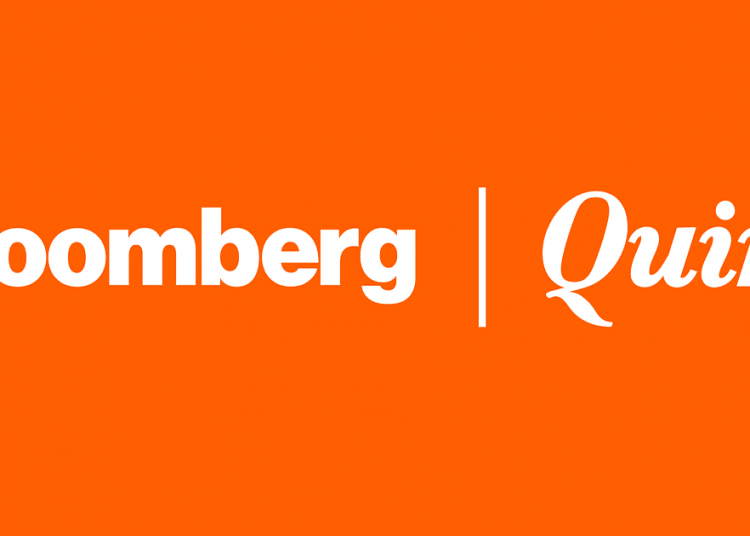(Bloomberg) — Airbnb Inc. reported revenue in the fourth quarter that blitzed analysts’ estimates, benefiting as people traveled over the holiday season despite rising Covid-19 cases and highlighting how vacation-home rentals are dominating the travel rebound.
Releasing its financial results for the first time as a public company on Thursday, Airbnb showed sales of $859 million in the final three months of 2020, a decline of only 22% from a year earlier. Analysts had been projecting $739.7 million, according to data compiled by Bloomberg. Nights and experiences booked, a metric that represents the total number of guest stays and tourist activities booked on the platform, dropped 39% from a year earlier to 46.3 million, the San Francisco-based company said in a statement. Gross booking value fell 31% to $5.9 billion.
The coronavirus pandemic continues to hammer the travel industry after a surge in cases through winter led to new lockdowns and restrictions and the vaccine rollout has faced hurdles globally. Airbnb was among the hardest-hit companies of the pandemic and almost shelved its IPO plans as travel shut down nearly a year ago. By April, room bookings and experiences had plunged 72%. Airbnb rolled out a blanket refund policy and doled out more than $1 billion in cancellation fees.
But Airbnb, which helped pioneer the home-sharing vacation model, has fared better than its rivals as travelers have taken advantage of work-from-home opportunities, road-tripping to nearby mountain villages or beach towns, often booking longer stays than usual. Airbnb started to see business stabilize in the fall and the company ended 2020 with a record-setting IPO. It’s stock is up 165% since then, valuing the company at more than $100 billion, greater than either Expedia Group Inc. or Booking Holdings Inc.
The IPO and its associated stock compensation, as well as the effects of the pandemic, led to steep losses in the fourth quarter. Airbnb reported a net loss of $3.9 billion compared with a loss of $351.5 million a year earlier. Analysts had projected a loss of $3.2 billion. The loss per share was $11.24.
Airbnb gave a cautious outlook about travel this year. “We have been encouraged by our continued resilience and recovery, and are optimistic about the upcoming travel rebound,” the company said in its report. But, Airbnb said it has “limited visibility for growth” in 2021 “given the difficulty in determining the pace of vaccine roll-outs and the related impact on willingness to travel.” Chief Executive Officer Brian Chesky has said he is hopeful vaccine distribution will lead to a post-pandemic travel boom that will continue to favor Airbnb over traditional hotels.
Analysts are also optimistic about Airbnb’s recovery. “Once a vaccine is widely distributed in the U.S. and Europe (we see by summer), revenue will come roaring back, with monthly bookings to exceed previous peak levels by year-end, reflecting the enormous amount of pent-up demand in the ecosystem,” CFRA analyst Angelo Zino wrote in a note before the results were released. He estimated Airbnb’s bookings would more than double in April. BTIG analyst Jake Fuller wrote that Airbnb is positioned to be the first online travel agent to return to room-night growth due to “the rising relevance of alternative accommodations.”
Expedia and Booking reported steep revenue declines in the fourth quarter of 67% and 63%, respectively. However, both online travel agencies pointed to growth returning to their alternative accommodation businesses. Booking said it plans to increase its whole-home rental offerings in the U.S. in response to Airbnb’s success.
“Airbnb operates almost a pure-play on alternative lodging so I think compared to other OTAs it will probably see less of a hit because that kind of lodging is more in demand,” Truist Securities analyst Naved Khan said in an interview before the results were released. People want to travel, but are opting to avoid hotels with communal lobbies, crowded elevators and shared dining spaces, according to a report released earlier this year by vacation rental data company AirDNA. “Throughout 2020, alternative accommodations gained a significant leg up on traditional lodging,” the report said. Heading into last year, U.S. short-term rentals accounted for just 10% of total lodging revenue — the pandemic boosted their share to over 25%, according to the report.
Airbnb is expecting to see a regional travel rebound this year. The company spent $630 million on sales and marketing in the fourth quarter, a 44% increase from the same period a year earlier. In January, the company released a report predicting travel trends for 2021, saying people will focus on rural destinations rather than crowded tourist hotspots. In the report, Airbnb said survey data showed 54% of respondents expect to travel this year. Research firm Morningstar also anticipates a travel rebound in the second half of 2021, and a full recovery by 2023.















